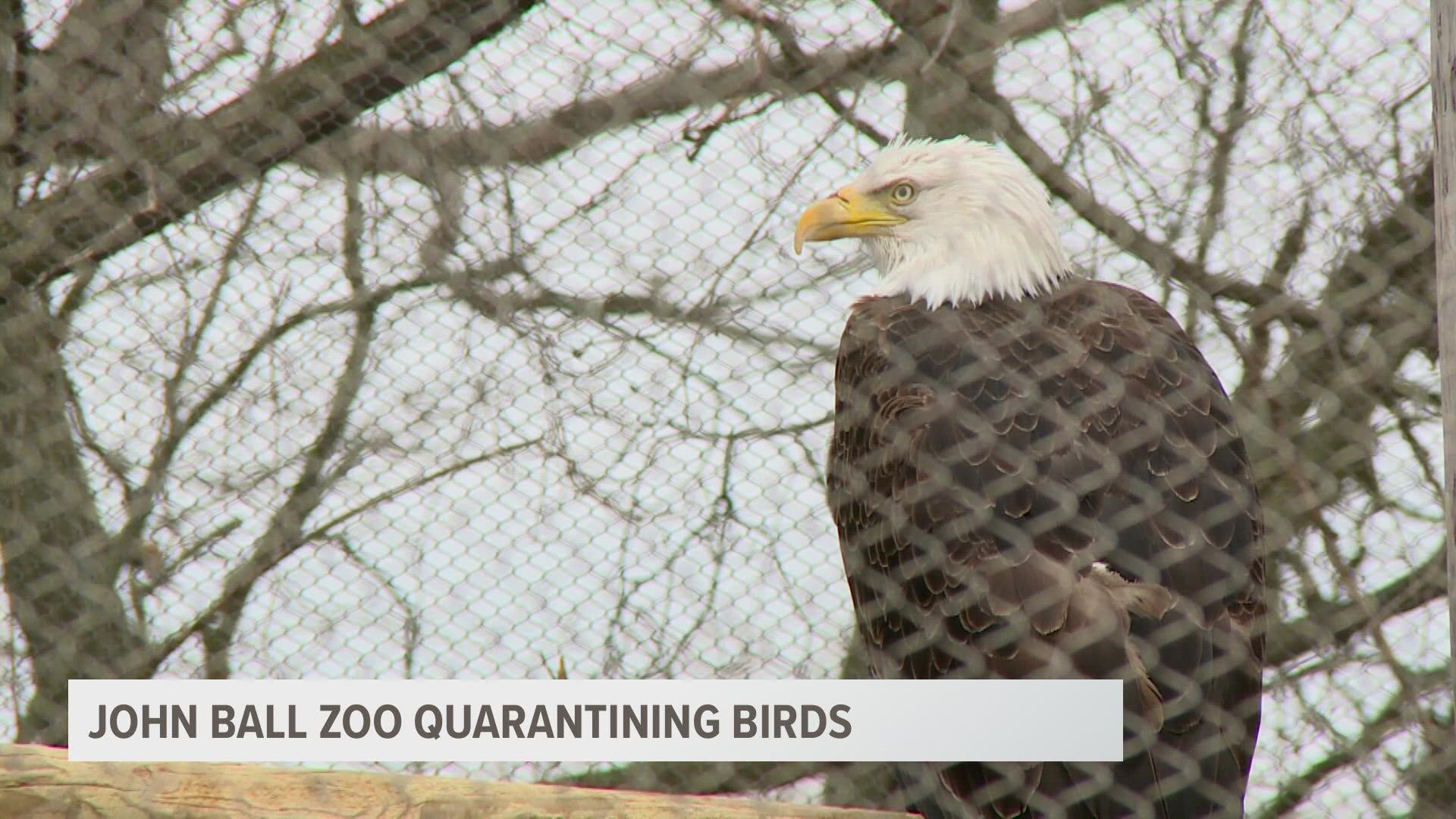GRAND RAPIDS, Mich — The United States is experiencing the largest outbreak of Avian Influenza since 2015. As of April 5th, 24 states have seen cases, impacting more than 22 million birds. The CDC says there is very little risk to humans, but as migration periods continue, John Ball Zoo in Grand Rapids isn't taking any chances with their avian residents.
"We have kind of an avian disease response plan here at the zoo that triggers at different points." Said Veterinarian Ryan Colburn. "When it's in North America, we have a certain set of responses. When it's within 300 miles, we start doing some other responses. We actually had a case come up in Kalamazoo County - that was the one that really triggered us to know that yes, it's here, it's in Michigan, it's not that far away, we need to make a move."
The zoo's a quarantine area is typically reserved for new animals to help them acclimate to the new life before moving into exhibits, but there are some birds in the quarantine area as well. For birds like penguins, which don't not have outdoor, or hybrid indoor/outdoor habitats, not much will change, but the rest are going to stay in their winter offseason housing for a bit longer.
"What we're going to be doing throughout the spring season is watching at those normal trigger points where birds would be coming outside, and how we can keep their exhibit safe," Colburn said. "Some species that we know are most susceptible, their appearance this summer is probably going to be delayed. Those that are less susceptible, we're going to be making modifications to their exhibits and getting them out as soon as we feel safe."
Colburn is hopeful that the delay in avian exhibit openings won't be too long. Some birds that aren't particularly suited for Michigan's everchanging March and April climate wouldn't be out this time of year anyway. He says one of the noticeable differences will be chickens and waterfowl, which he said are the most at risk for this current outbreak, but he guessed that by June, things would be back to normal operation.
According to the CDC there is very little risk to humans. Though the price of poultry and eggs is expected to rise because of this outbreak, the USDA says as long as it is properly cooked, both are still safe to eat.
To track where outbreaks are happening, you can click this link for the CDC's Avian Flu page.

